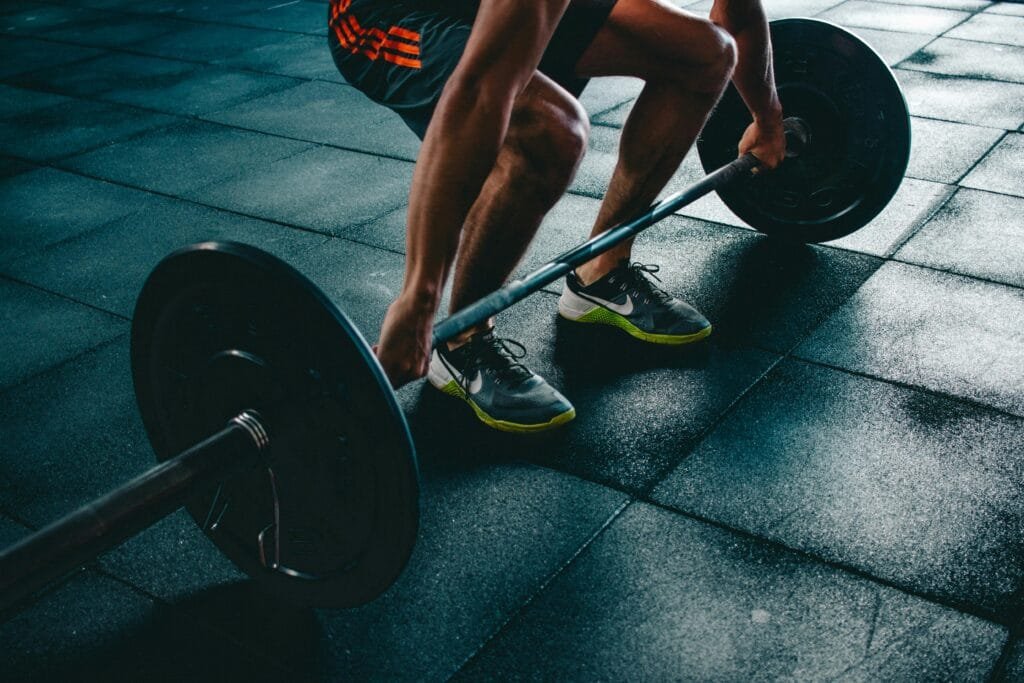(Achieving fitness goals often requires dedication to diet and exercise, but many overlook a critical factor: sleep. While it may seem like an afterthought, quality sleep plays a vital role in physical performance, recovery, and overall health. In this post, we will explore the profound connection between sleep and fitness goals, the science behind it, and practical tips to enhance your sleep quality for better results in your fitness journey)
The Science of Sleep

Sleep is a complex physiological process that affects various bodily functions, including hormonal balance, muscle recovery, and mental well-being. The average adult requires between 7 to 9 hours of sleep per night, but individual needs can vary. Sleep occurs in cycles, comprising different stages, including:
- NREM (Non-Rapid Eye Movement) Sleep: This stage is crucial for physical restoration and recovery. NREM sleep consists of three phases, with deeper stages (Stage 3) being particularly restorative.
- REM (Rapid Eye Movement) Sleep: This stage is essential for cognitive functions such as memory consolidation and mood regulation. It typically occurs about 90 minutes after falling asleep and recurs throughout the night.
You Can Also Try This Digital Product = Insomniac : The Ultimate Sleep Therapy +2 Bonuses | EBooks
Hormonal Influence on Fitness
Hormones released during sleep have a direct impact on fitness goals:
- Growth Hormone: Released primarily during deep sleep, growth hormone is crucial for muscle repair and growth. It promotes protein synthesis, helping you recover from workouts and build lean muscle.
- Cortisol: This stress hormone typically rises during the day and falls at night. Adequate sleep helps regulate cortisol levels, reducing stress and preventing the breakdown of muscle tissue.
- Leptin and Ghrelin: Key hormones that control hunger and appetite levels. Leptin signals satiety, while ghrelin stimulates hunger. Sleep deprivation can lead to an imbalance, causing increased hunger and cravings for unhealthy foods, which can sabotage your fitness goals.
Sleep and Physical Performance

Numerous studies highlight the impact of sleep on athletic performance and fitness levels:
- Strength and Power: Research shows that athletes who get adequate sleep exhibit improved strength, power, and overall performance. A lack of sleep can impair your ability to perform high-intensity workouts, leading to suboptimal results.
- Endurance: Sleep-deprived individuals often experience decreased endurance and increased fatigue during workouts. This can hinder long-distance runners, cyclists, and other endurance athletes in achieving their performance targets.
- Reaction Time and Coordination: Quality sleep enhances cognitive functions, including reaction time and coordination. These aspects are crucial for activities like weightlifting, sports, and even day-to-day tasks.
Sleep and Recovery

Recovery is a fundamental component of any fitness regimen, and sleep is integral to this process. During sleep, the body undergoes repair and recovery, allowing muscles to heal and grow stronger. Here’s how sleep aids recovery:
- Muscle Repair: As mentioned earlier, growth hormone facilitates muscle repair during deep sleep, making it vital for those engaged in strength training.
- Reduced Inflammation: Adequate sleep can reduce inflammation markers in the body, promoting faster recovery after intense workouts.
- Mental Recovery: Sleep helps to restore cognitive function and mental clarity, essential for maintaining focus during workouts and making sound nutritional choices.
Tips for Improving Sleep Quality
To harness the benefits of sleep for your fitness goals, consider implementing the following strategies:
- Create a Consistent Sleep Schedule: Aim to hit the hay and rise at the same time each day to help your body maintain its natural rhythm. This consistency can enhance sleep quality.
- Establish a Calming Sleep Atmosphere: Make your bedroom a sleep-friendly haven by maintaining darkness, a cool temperature, and minimal noise. You might want to use blackout curtains, earplugs, or a white noise machine to enhance your comfort.
- Reduce Screen Exposure Before Sleep: The blue light from screens can disrupt melatonin levels, making it more challenging to drift off. Try to power down electronic devices at least an hour prior to sleep.
- Be mindful of your food choices: Steer clear of heavy meals, caffeine, and alcohol before bed, as they can interfere with your sleep. If you’re feeling hungry, choose lighter snacks instead.
- Incorporate Relaxation Techniques: Practices such as meditation, deep breathing, or gentle yoga before bed can help calm your mind and prepare you for sleep.
- Prioritize Physical Activity: Regular exercise can promote better sleep, but try to avoid intense workouts close to bedtime, as they may interfere with your ability to wind down.
Conclusion
In the pursuit of fitness goals, sleep should never be underestimated. It is not merely a time for rest; it is an essential component of your overall health and well-being. By prioritizing quality sleep, you can enhance your physical performance, accelerate recovery, and improve your mental clarity, ultimately helping you achieve your fitness aspirations.
Embrace the power of sleep as a fundamental ally in your fitness journey, and watch as it transforms your results and overall well-being. Remember, it’s not just about working hard in the gym; it’s about balancing effort with adequate recovery, and sleep is the cornerstone of that balance.
You Can Also Try This Digital Product = Insomniac : The Ultimate Sleep Therapy +2 Bonuses | EBooks